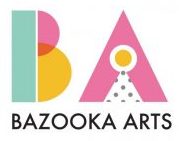This week, the 18th – 25th October, is the second ever international Drama Therapy week.
It’s a week where the World Alliance of Dramatherapy invites all of its members to share insights into their work through lectures, performances, and workshops over social media.
What is Dramatherapy?
Dramatherapy is, in essence, the intentional use of drama and theatre processes as therapy. It fully engages the whole person – through mind, body, senses, feelings and emotions – in creativity, imagination, story and play. We do this through the exploration of real and fictional worlds.
The therapeutic goal of this process is for a person to experience a positive impact on their well-being through a combination of learning, insight, personal growth and / or recovery which is tailored to their personal circumstance.
Dramatherapy, like Art and Music therapy, is one of the Arts Therapies. In the UK Arts Therapists are registered to practice with and regulated by the Health and Care Professions Council.
You may have noticed that International Drama Therapy Week writes drama therapy as two words. In the US, we are described as Drama Therapists; whereas in the UK we write it as one word, Dramatherapy.
In Scotland we are very rare; there are currently under 30 Dramatherapists registered and practicing here. A Dramatherapy MSc. programme will be launching at the Queen Margaret University in Edinburgh in 2022 – this will be the first Dramatherapy training course in Scotland, paving the way for more Dramatherapists to have a positive impact in our communities.
The MSc Dramatherapy will sit within the School of Health Sciences and will be offered as a pathway within a framework shared by Art Psychotherapy and Music Therapy. The programme will include shared modules with students from the above two courses, as part of integrated, interdisciplinary learning. It will be offered as a 2-year, full time programme only initially, with applications now open for a first student intake in 2022/23.
Programme information and application details can be found at:
https://www.qmu.ac.uk/study-here/postgraduate-study/2022/msc-dramatherapy/
What do you do in Dramatherapy?
When it comes to content, Dramatherapy uses the whole world of theatre and film to draw from, which offers a great diversity in approach, making it possible for participants to connect creatively through their preferences and interests in stories, films, TV, plays, genres, issues, or increasingly through computer gaming worlds and characters. There is great scope to work responsively, age appropriately and to take account of levels of inhibition.
Dramatherapy naturally shares some common ground with play therapy – because play is an intrinsic part of drama and drama is naturally a part of play.
Activities include:
- Drama games, play and improvisation
- Exploring movement, rhythm, voice, gesture and expression
- Exploring characters, roles, relationships and communication
- Storyboarding and creative writing of stories, monologues, scenes, films or plays
- Enacting existing stories, scenes and plays
- Making and/or using masks, puppetry, costume, props, set and scenery
- Using small world objects, toys, sensory play, art materials to express feelings, ideas, stories
- Creating familiar environments, imaginary worlds or alternative universes in miniature or as big as will fit in the available space.
- Working with personal experiences – telling their story or bringing everyday issues into the therapeutic space to explore, reframe or rehearse for change
- Where appropriate and of therapeutic benefit, filming or performing any of the above to show the therapist or an invited audience.
Trust
Establishing a trusting therapeutic relationship is the foundation of the dramatherapeutic process. This is key to providing a person with a safe place to explore relationships, issues or experiences that are having a negative impact on their wellbeing.
Exploration & Metaphor
Often the fictional worlds or stories children and adults are drawn to or create can reflect themes and problems from their real world through metaphor. The use of metaphor and dramatic distance are also key to dramatherapeutic process.
The distance of working through imagination and fictional worlds creates a safe and contained way to look at real life problems. Imagination becomes a container, creating both the safety and freedom to explore issues in greater depth than would be possible or bearable to do directly. This provides an opportunity for children and adults to express emotion, explore, process and solve problems and to integrate their past experiences and develop greater tolerance of conflicting emotions.
Our Dramatherapeutic Process
Here at Bazooka Arts we offer one to one and group dramatherapy through our therapeutic programmes. We have provided dramatherapy for children through our schools programmes in both primary and secondary schools in North Lanarkshire.
Our dramatherapy approach also underpins our therapeutic theatre and participatory drama programmes. This includes our ‘All Stars’ all-ability Drama group for adults in Coatbridge, the ‘Acting Up’ drama programme for children in East Renfrewshire and our work with ‘Theatre Tonic’ – a group of adults who make theatre for wellbeing in East Kilbride.
If you want to learn more about Dramatherapy, you’ll find lots of information on social media by looking up the hashtag #dtweek2021.
If you are an organisation or individual who is interested in accessing Dramatherapy through Bazooka Arts, please email create@bazookaarts.co.uk
